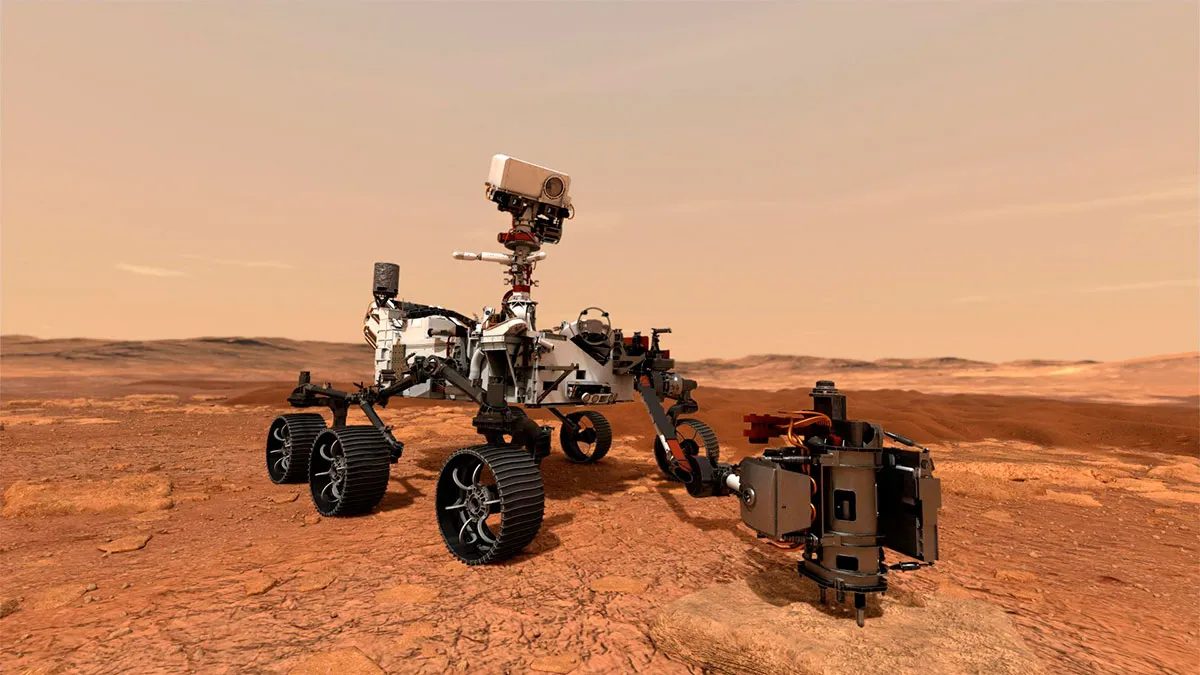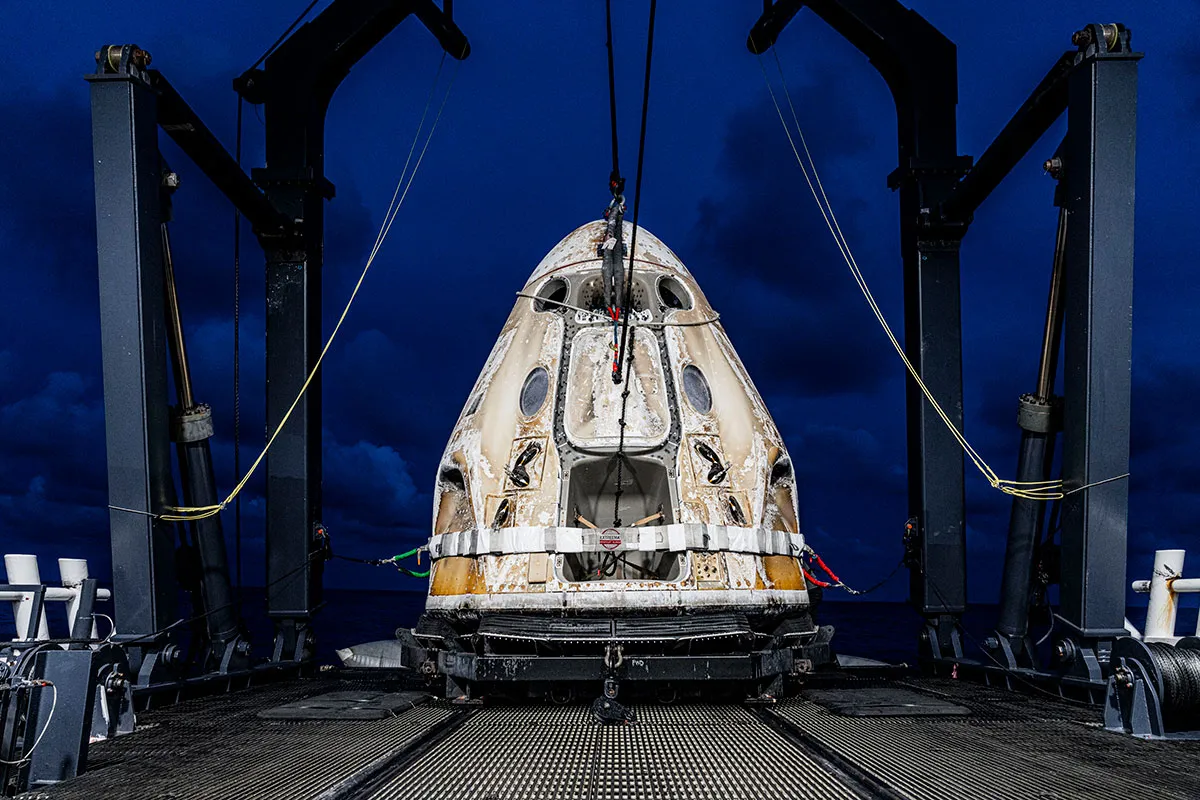Prof Brian Cox’s new show, Universe, is a scientific creation story. He tells us why the series doesn’t shy away from the unknown, why he sees the stars as gods, and why he wants to launch Boris Johnson into space.
What can viewers expect from your new show?
It’s at one level a cosmology series. I think cosmology forces us to approach the deepest questions because cosmology is about the origin of the Universe and the fate of the Universe. Questions are raised about the nature of life in the Universe. How common is life? How did it begin?
We’re talking about creation stories, essentially. This series is the scientific creation story. And it has to be, because cosmology is literally the study of the large-scale structure and evolution of the Universe, therefore, it’s about creation.
I say right at the beginning that the value of astronomy and cosmology is not so much about the things we discover. It’s the fact that it challenges us. So we are forced to accept that we’re not the centre of the Universe, that we are a tiny speck in a vast and possibly infinite Universe that may be eternal into the future, possibly even in the past. We don’t know.
I think the value in such a series is really to say, “This is the arena in which we exist. This is the story of how we came to be here, as told by science,” by which I mean the best [explanation] we can do, given our available knowledge. Lots of things that we don’t know are also very valuable.
So this series, more than any other that I’ve done, goes right to the edge of knowledge, in particular, the film about black holes. In this series, we’re talking about discoveries made in 2020, really fundamental discoveries about the nature of space and time and what they are and whether they emerge from a deeper theory.
I think the most valuable thing about science is that it forces us to, first of all, recognise what reliable knowledge is. And secondly, it forces us to understand where the horizon is, where the edge of knowledge lies. And it rests on the fact that we’re prepared to peer over the horizon into the darkness without fear. We don’t shy away from it. We say, well, this is exciting. There’s stuff we don’t know. The stuff we don’t know now is fairly profound and fundamental. And that’s ultimately what the series is about.
Read more about science documentaries:
- The best documentaries on BBC iPlayer to watch right now
- The best National Geographic documentaries to watch on Disney+
- The best nature documentaries to stream online now
In the first episode, you talk about stars and how they bring meaning to the Universe. Could you tell us a bit about that?
I’ve made loads of films about stars. Lots of people have made films about stars. And so we thought, what does the story of the stars really tell us? We realised that we don’t know where it was or what it was like, but there was a time before the stars. So therefore there was a first star in the Universe in some sense.
There were some stars that came into being, and there will be a last star. We know, because the Universe is accelerating in its expansion, that the age of stars is finite. New stars are not made at the same rate. The old stars die and so there’ll be a last star. And so we thought, that’s an interesting story. We’ll tell the story of the stars from the first star to the last star.
And also, in order to have a living Universe, then you need the stars. It’s well known that the stars make the heavy elements out of which we’re made. It’s also perhaps less well known that the way those elements can be assembled into complex structures is reliant on the stars, is reliant on hot spots in a cold sky. The science of thermodynamics says that you can’t do anything without temperature differences. So we, in a sense, live in a giant steam engine powered by the Sun. That’s the physics of what’s happening here on Earth.
And so in that sense, by any definition that I can find of the word ‘god’, the stars qualify, because they’re creators, they create the building blocks of life. They’re the foundation of virtually all life on Earth today, apart from some rather exotic bacteria deep underground. The foundation of it all is photosynthesis, which is an interface between the star and the cold of space, basically, it’s an engine. And so quite provocatively, but I think logically, the stars are gods.
But what we find interesting is that stars are mortal. They were born and they will die. And I thought that was an interesting way to talk about what these things are. There’s a strong element in the series of challenging the audience to think, and so it’s not just a presentation of facts. Given what we know, what are we to make of this knowledge? That’s basically the intellectual foundation of the series. It’s a challenge. Intellectual challenge.

If you could select where the next big space mission would go, where would you choose?
Oh, there are two answers. In Solar System exploration, to me, the search for life beyond Earth is really important. So Europa, where the Europa Clipper mission is now, I think is absolutely fascinating and valuable. You could also argue that another mission to Enceladus would be extremely valuable. The Sample Return Missions from Mars are really important, because they’re exobiology missions [that look for life beyond Earth].
Beyond the Solar System, I think that gravitational wave astronomy is absolutely fundamental, a completely new way of observing the Universe. For the first time really in the history of astronomy, we’ve got something other than light [to observe the Universe]. I’d like to see a big gravitational wave detector in space.
The continued high-precision measurements of the cosmic microwave background are also really important, because that’s our window onto the very early Universe. It is also our window onto our theories about what happened before the Big Bang. There are very specific predictions about structures in the cosmic microwave background that we need to test, and we’re not quite sensitive enough to test them yet.
Spaceflight is changing and becoming more commercial. What do you think about this?
I think it’s great. The history of aviation, and the history of almost anything, tells us that in the early days it tends to be funded by governments. But ultimately, if you’re going to make spaceflight routine, it has to be in the private sector, it can’t be government-controlled. It needs to be cheap, and it needs to work reliably. If we are going to make it work, it needs to be like aviation is today. I think we are there, pretty much.
It’s astonishing to me that after a long time of being quite miserable following the Apollo programme and seeing very little progress – other than the International Space Station, which is a tremendous achievement – we’ve just seen the first entirely commercial non-professional crew go into space for three days and come back again. While that will be characterised as, you know, a rich person’s plaything or a stunt, to me, what it represents is the fact that spaceflight is becoming routine.
And that’s really important, because if you think about it, if you strip away all the emotional baggage from it, we’ve already industrialised Earth’s orbit. This is vital, because answers to fundamental questions are coming from satellite observations. Like our understanding of the climate, measurements of ocean surface temperatures, land use patterns, weather forecasting, communications and so on. We wouldn’t have access to this information otherwise. It’s already vital to the infrastructure of our civilisation.
And so the fact that we are beginning to be able to get into space cheaply, reliably and safely means that it is going to expand. To me, that is entirely a good thing. The fact that it’s now been essentially dominated by the private sector is also a good thing, because it means that it’s not taxpayers and governments that are doing it an extremely expensive way. It’s the commercial sector.

Would you book a flight into space, if you could?
I’d love to see the Earth from space. And I think that’s going to be one of the valuable spinoffs, actually, of this new space race. And I’ve really been privileged to meet a lot of astronauts from the Apollo times, and even the Mercury programme.
In those days, they were all test pilots and not given to overly emotional responses to things. But what they all shared is a profound feeling of the fragility and value of our planet. It sounds a bit happy-clappy to say that, but it’s not, because they do.
I think, almost without exception, they were all profoundly moved by it. When looking back at the Earth, one of the Apollo astronauts said that line that’s delivered in Mars Attacks!: “Why can’t we all just get along?”
I do think that the more people experience that, the more we will come to value our planet and our fellow human beings and our civilisation. I think that’s demonstrably true, given the nature of the reaction of the astronauts that have seen it.
So I would make it compulsory for anyone who wants to run a country. I would launch Boris Johnson, Joe Biden… I’d launch them into space. I think they should go. The cheapest one is Virgin Galactic, what is it, about $400,000 or $500,000 dollars? That would be a good investment.
Go up there, look at the planet that you are responsible for, look at it in the cosmic context, the context in which it sits and then come back and make your choices. And I would gladly pay my tax to send Boris Johnson into space... and return him safely to Earth.
- Universe will premiere on BBC Two and iPlayer on 27 October.